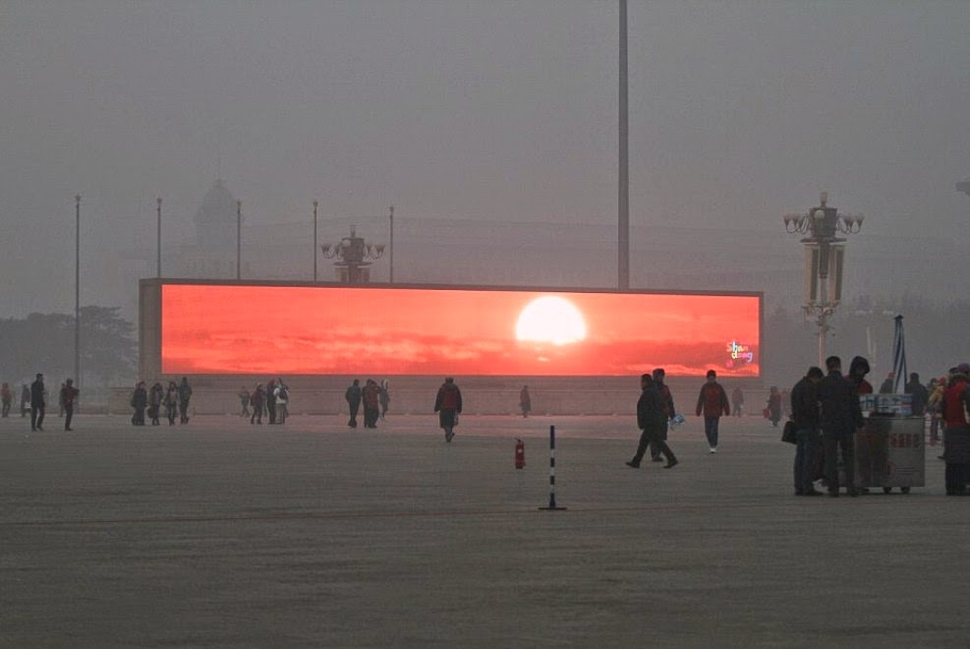We live in a modern age with smartphones and fiber-optic internet, on one side of the planet. The other side consists of people fighting over whose God is the righteous one (though they all believe in the same one), enslaved workers building life-sized playgrounds for the oil-enriched royals, and a billion people strong country that is polluting to death not only itself, but the Earth as a whole as well.
In the few millennia we, the humans, lived in the civilized society, you’d think we would have gotten it right eventually; that we would be on our way to the stars, exploring the universe, and prospered from the knowledge our ancestors have left us with, having cured the humanity of disease and poverty first. Instead, we are seeing a massive migration of a country’s worth of people from war-stricken regions, and a growing gap between the rich and poor.
So, could being responsibly innovative fix this?
A good start would be fixing what we have been destroying for the past 150 years or so – our environment. Although it is too late to do so, according to some experts, the humanity is in a desperate need to fix what the industrial revolution has brought us, the heavily polluted environment. The biggest problem right now (in my opinion) is very political, since the big change we are all waiting to happen, with greener cars, factories, cities, is stuck in a typical bureaucratic mess that any other change of this magnitude goes through (legalizing gay marriage, for an example).
The saddest part is that we are capable of changing things quickly, as was demonstrated in Beijing during the 2008 Olympic Games. Due to this event, the pollution in the city was brought down to levels the rest of the world would consider acceptable. Things quickly went back to the usual once the Games were over, unfortunately. A few days ago, Environmental Health Perspectives [1] published a paper in which it was determined that babies born in Beijing during the Olympics weighed an average of 23 grams more than in the previous years around the same time. The air pollution is harming humans before they’re even born. Yet, we continue this rampageous destroying of our planet, for the sake of the economy and profits!
Air pollution in Beijing, source:gettyimages.com
Some food for thought then, if China is capable of drastically decreasing its pollution when it must do so, what is stopping the rest of the world from taking a step forward and eliminating, or at least decreasing, the pollutions they are causing?
A nice counter-example to China’s horrible record is Rwanda, a small African country with an uproarious history, which is trying to take a step forward. See, in Rwanda, plastic bags are illegal. Instead of using the precious fossil fuels to create them, and poisoning the environment by the toxins released once the plastic bags were burned at their disposal, Rwandan government decided that a full-on ban on plastic bags was a better idea. If a developing country such as Rwanda can achieve this, what’s stopping the rest of the world?
Like previously mentioned, most of these problems (and their solutions) will arrive at a bottleneck that is the bureaucratic political system we as a society rely on. From the Chinese government refusing to reduce their pollution footprint, to the Australian Prime Minister Tony Abbott trying to ban investments on renewable energy [2], our problem is the ignorance found on top of the societal pyramid.
Sources
[1] Differences in Birth Weight Associated with the 2008 Beijing Olympics Air Pollution Reduction: Results from a Natural Experiment - http://ehp.niehs.nih.gov/1408795/
[2] Tony Abbott has escalated his war on wind power - http://www.smh.com.au/federal-politics/political-news/tony-abbott-has-escalated-his-war-on-wind-power-20150711-gia3xi.html
